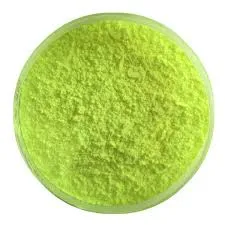The Role of L-Ornithine L-Aspartate in Liver Disease Management
Liver disease is a significant global health concern, encompassing a wide array of conditions such as hepatitis, cirrhosis, and fatty liver disease. These disorders can lead to severe complications, including hepatic encephalopathy, which is characterized by cognitive dysfunction resulting from liver failure. In recent years, L-ornithine L-aspartate (LOLA) has emerged as a promising therapeutic agent for managing hyperammonemia and its associated neurological symptoms in patients suffering from liver disease.
The Role of L-Ornithine L-Aspartate in Liver Disease Management
The administration of LOLA has shown beneficial effects in reducing blood ammonia levels. The underlying mechanism of action involves the conversion of ammonia into non-toxic substances, which can be subsequently eliminated by the body. By enhancing the urea cycle and facilitating the uptake of ammonia, LOLA not only helps to lower the toxic buildup but also ameliorates the cognitive and neurological symptoms associated with hepatic encephalopathy.
l ornithine aspartate in liver disease

Several clinical studies have investigated the efficacy of LOLA in various populations suffering from liver disease. These studies have consistently demonstrated that LOLA administration can significantly reduce blood ammonia levels and improve clinical outcomes. For instance, patients receiving LOLA treatment often show marked improvements in symptoms such as confusion, disorientation, and lethargy. Furthermore, the studies confirmed that LOLA is generally well-tolerated, with a favorable safety profile, making it an attractive option for long-term management.
The use of LOLA is particularly relevant in the context of acute liver failure and chronic liver diseases where hyperammonemia is prevalent. Given that hepatic encephalopathy can severely affect a patient’s quality of life and increase morbidity and mortality rates, effective interventions like LOLA can provide substantial benefits. Clinicians are increasingly recognizing the importance of ammonia management in the holistic approach to treating liver disease, and LOLA is often included in the therapeutic repertoire.
While the benefits of LOLA in managing hyperammonemia are well-documented, it is essential to acknowledge that it is not a standalone solution for liver disease. The management of liver conditions requires a multi-faceted approach that includes lifestyle modifications, dietary management, and pharmacological interventions, where applicable. Patients are often advised to adhere to a low-protein diet and avoid substances that may exacerbate liver dysfunction. Furthermore, the underlying cause of liver disease must be identified and treated to prevent further progression and complications.
In conclusion, L-ornithine L-aspartate represents a valuable tool in the management of liver disease, particularly in addressing the challenge of hyperammonemia and its neurological consequences. As more research continues to illuminate its mechanisms and efficacy, it is likely that LOLA will play an even more prominent role in the treatment landscape for liver disorders. For patients suffering from these debilitating conditions, the integration of LOLA into treatment protocols could enhance their quality of life and lead to better health outcomes. Thus, ongoing studies and clinical trials are essential to fully understand the potential of L-ornithine L-aspartate in improving the prognosis of liver disease.

